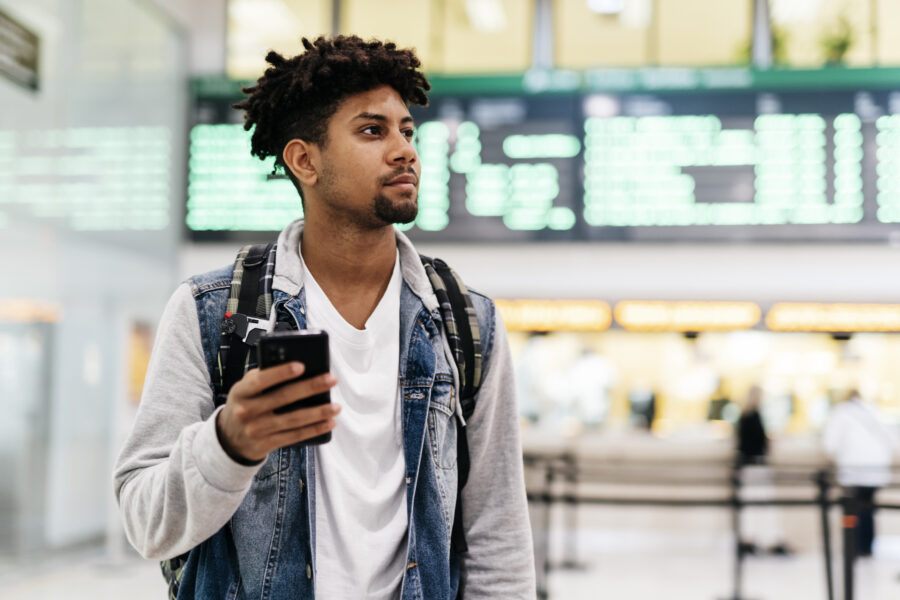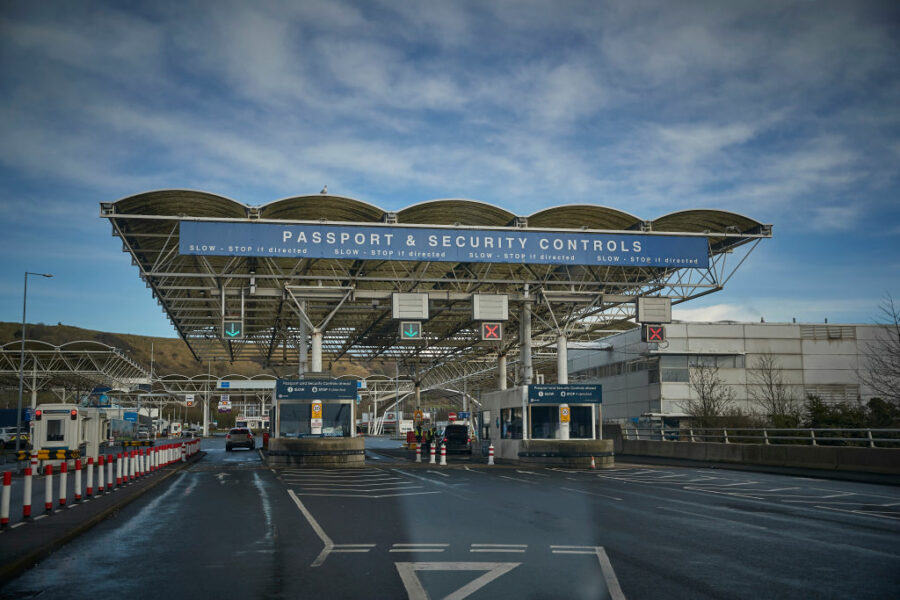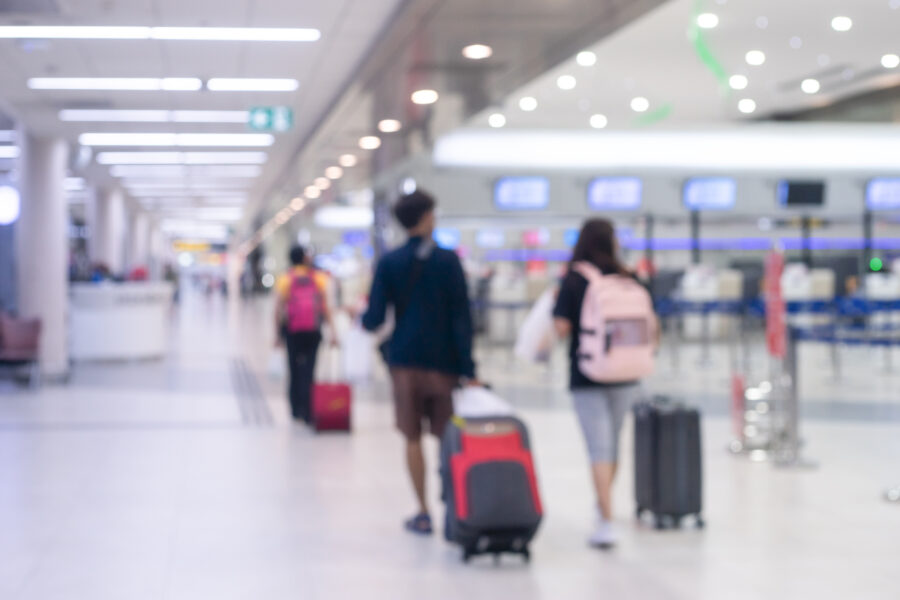What is the Entry/Exit System?
The European Union’s (EU) Entry/Exit System (EES) started on 12 October 2025. This is a new digital border system that has changed requirements for British citizens travelling to the Schengen area. EES checks are being introduced in a phased way across external borders, with full operation expected by 10 April 2026.
The countries in the Schengen area are:
Austria, Belgium, Bulgaria, Croatia, Czechia, Denmark, Estonia, Finland, France, Germany, Greece, Hungary, Iceland, Italy, Latvia, Liechtenstein, Lithuania, Luxembourg, Malta, Netherlands, Norway, Poland, Portugal, Romania, Slovakia, Slovenia, Spain, Sweden, and Switzerland.
EES is not applicable when travelling to the Republic of Ireland and Cyprus.
If you are travelling to a country in the Schengen area for a short stay using a UK passport, you will be required to register your biometric details, such as fingerprints and/or a photo, when you arrive. EES registration will replace the current system of manually stamping passports when visitors arrive in the EU. You do not need to take any action before you arrive at the border, and there is no cost for EES registration.
EES may take each passenger a few extra minutes to complete so be prepared to wait longer than usual at the border once the system starts. During phased implementation some border points may still stamp passports as well.

What is happening?
The EU has introduced a new digital border system called the Entry/Exit System (EES). This affects most travellers from non-EU countries, including those from the UK. It applies to those travelling to the Schengen area which encompasses all EU countries, except for Cyprus and Ireland. Additionally, the non-EU States Iceland, Norway, Switzerland and Liechtenstein are also part of the Schengen area.

How EES affects travel to the Schengen area
The UK government has been working closely with the European Commission, Member States, local authorities and the travel industry to prepare ports for EES. The government is supporting ports and carriers to ensure EES registration is simple for people travelling to the Schengen area.
UK and non-EU travellers using Eurostar from London St Pancras International will need to use self-service pre-registration kiosks, which are located in three areas of the station, before going through the ticket gates.
UK and non-EU travellers using Eurotunnel at Folkestone will be directed to a purpose-built pre-registration area to use self-service pre-registration kiosks, before continuing to embark on their journey.
UK and non-EU travellers using ferry services from the Port of Dover will be registered with kiosks at the purpose-built Western Docks processing area, before being directed to the Eastern Docks ferry terminal.
UK and non-EU travellers entering the Schengen area by air or by ferry services departing from ports other than Port of Dover will be registered at the border on arrival in their destination country.

If you are travelling to the Schengen area
You will need to create a digital record on your first visit to the Schengen area at the port or airport on arrival. You will be required to submit your fingerprints and have your photo taken at dedicated booths.
You will not need to provide any information before starting your travel to a Schengen area country.
If you are flying to a country in the Schengen area, you may experience longer queue times when you arrive at your destination.
If you enter the Schengen area through the Port of Dover, Eurotunnel Le Shuttle at Folkestone or St Pancras International, this information will be taken at the border, before you leave the UK. You will also need to provide either your fingerprint or photo when you leave the Schengen area.
If you frequently travel to the Schengen area for work and/or leisure purposes, you must ensure that your total stay in the Schengen area is no more than 90 days in every 180 days. You must be aware of the penalty and enforcement approach for exceeding the immigration limit in any individual Member State you plan to travel to, or through.
Your digital EES record is valid for 3 years. If you enter the Schengen area again during this time, you will only need to provide a fingerprint or photo at the border, when you enter and exit.
Why has the EU introduced EES
EES is designed to improve border security within the EU and its neighbouring countries, and reduce illegal migration in the Schengen area. It will automate border control checks to help the EU stop visitors overstaying.
EES is part of wider work the EU is doing to strengthen their border security. In the last quarter of 2026, the EU is expected to start operations of the new European Travel Information and Authorisation System (ETIAS). No action is required from travellers at this point. The European Union will inform about the specific date for the start of ETIAS before its launch.
When ETIAS is introduced, you will need to apply for authorisation to enter Schengen area countries if using a UK passport. You will need to provide personal information and details about your trip as part of the authorisation process.
The EU has already set out more information on ETIAS, including what information will be required from each nationality, on the EU’s official Travel Europe website.

What if I have Withdrawal Agreement rights?
If you are a British national living in the EU and a beneficiary of the Withdrawal Agreement (WA), you are exempt from registration in the EES if you can produce your WA residence document. The UK government strongly urges all UK nationals covered under the WA to obtain their WA document.
If you cannot produce this document, you are likely to be registered in the EES and could face difficulties when travelling. Please speak to a border official and state you are covered by the Withdrawal Agreement.
The name of the WA document allowing exemption from EES varies by country. Please consult your country’s Living in Guide for more detail.
The name of the WA document allowing exemption from EES varies by country. Please consult your country’s Living in Guide for more detail.
Travelling by cruise
Sailings that start and finish their journey outside of the Schengen area (for example, at a UK port) will generally be exempt from EES checks, including for any day trips into the Schengen area that are part of their itinerary.
Travellers who disembark a cruise within the Schengen area, and travel on to a further destination, including an alternative port, by other means, will need to complete EES checks when leaving the ship. Any travellers boarding a cruise within the Schengen area will need to complete EES checks at their initial port of entry to the Schengen area.
What can I do?
- Follow the advice of your travel operator
- Visit the Travel Advice page on gov.uk for your destination so you know the full entry requirements
- Please have all that you need prepared in case you need to queue for a long period. This includes any medication, food or water you may need
- Find out more information on the EES initiative on the EU’s official Travel Europe website